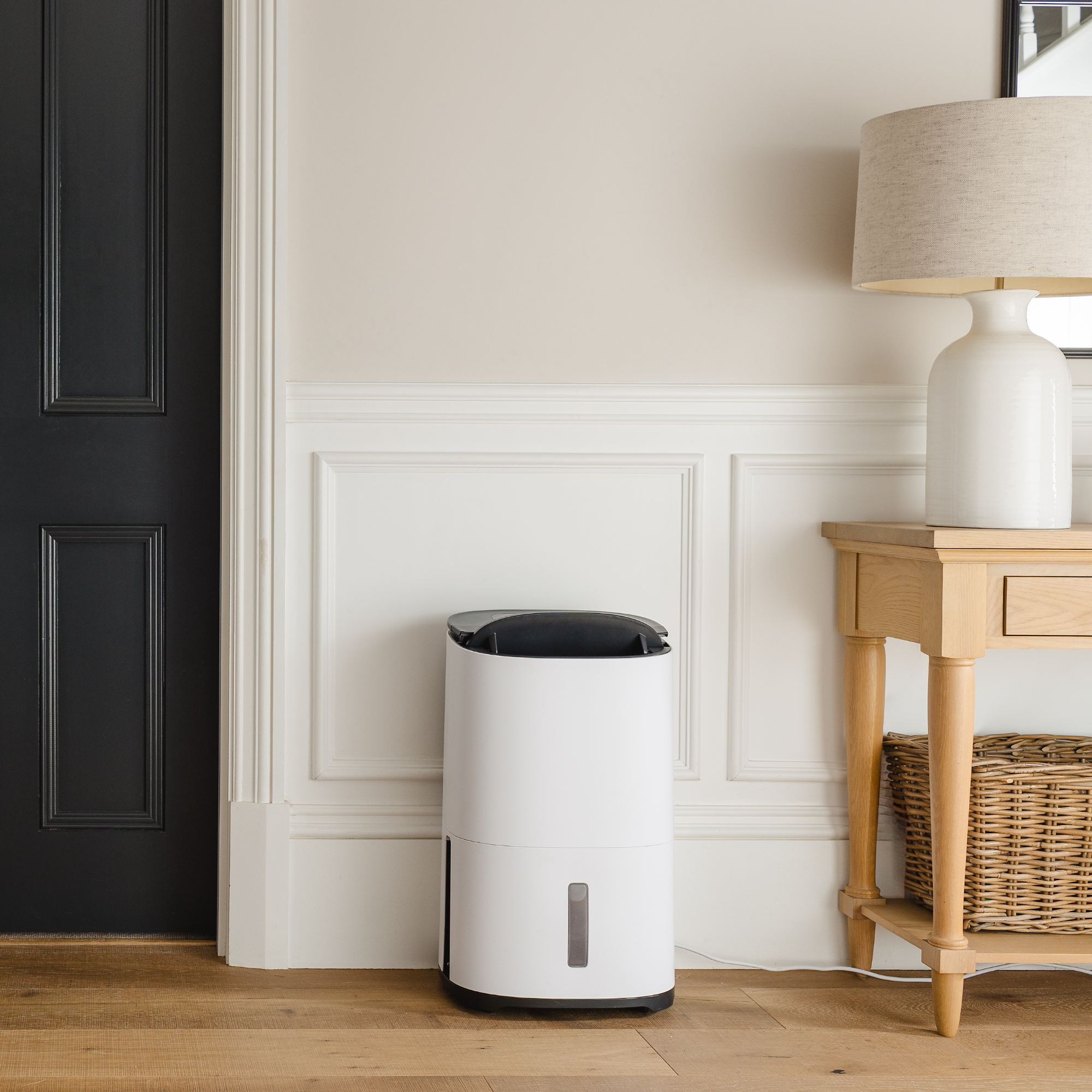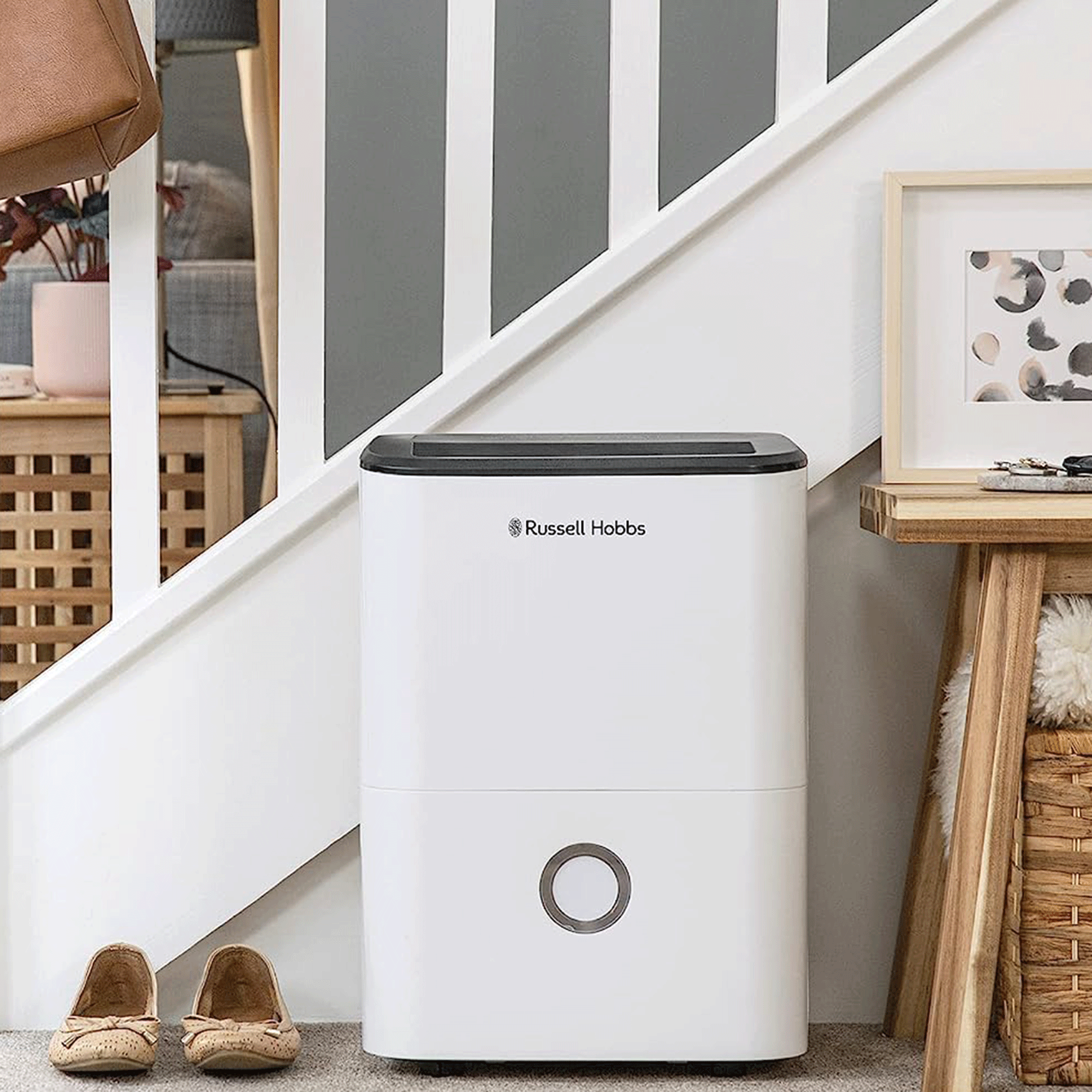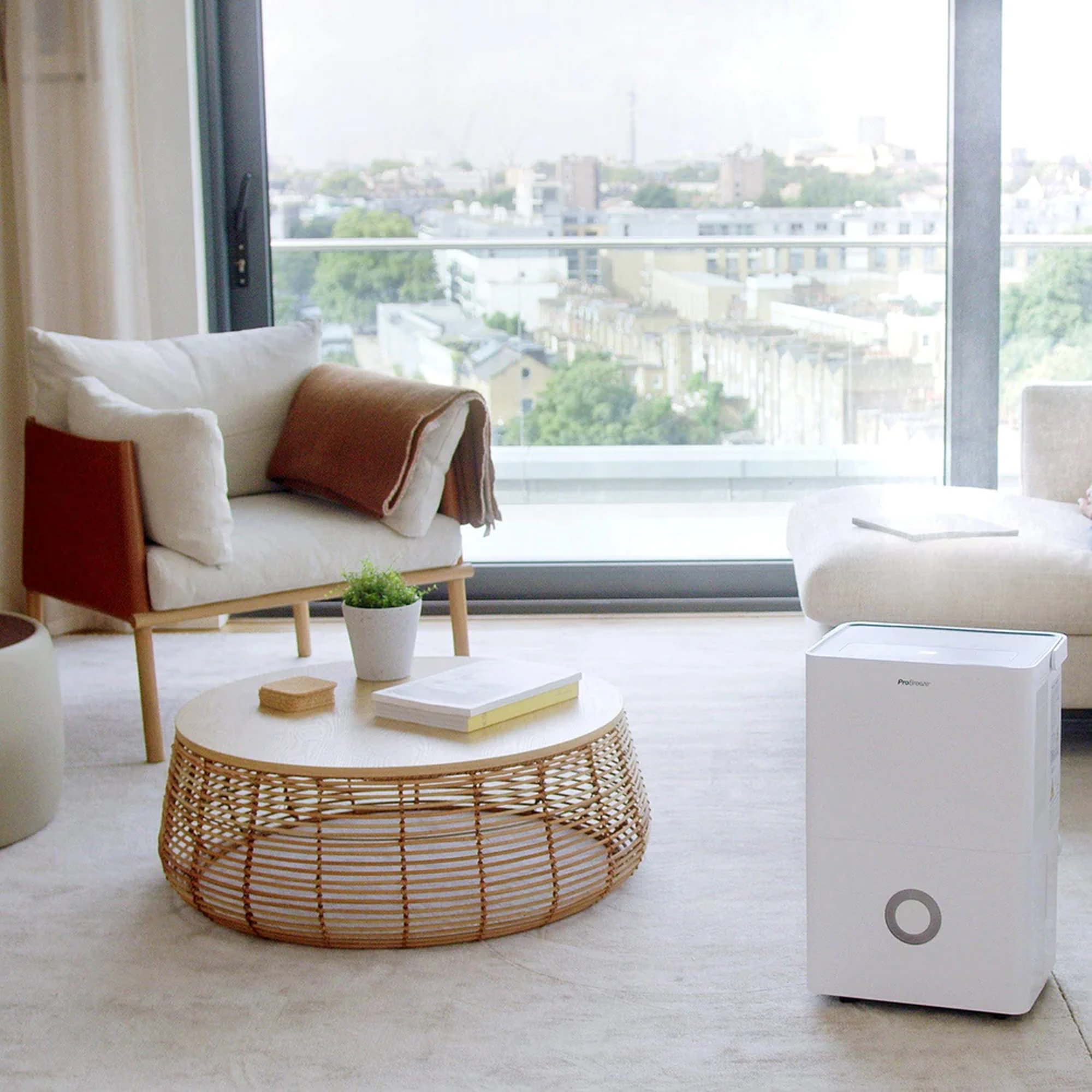
As we're now well into the colder months, dehumidifiers are once again becoming the big talk of the town. These handy appliances are always ready to tackle all sorts of jobs; from managing moisture issues inside our homes to even drying clothes – but can a dehumidifier dry out damp walls?
It's no secret that we adore our dehumidifiers here at Ideal Home, and for good reason. Investing in one of the best dehumidifiers is a sure-fire way to significantly improve indoor humidity levels and further protect it from issues that arise from damp and condensation, especially during autumn and winter.
The good news is that yes, dehumidifiers will dry out damp walls; but it's important to opt for the right kind if you want the most notable results. To help you better understand which dehumidifiers are well placed for the task, we've asked the experts for their advice as well as recommended guidelines for using a dehumidifier in the winter months to effectively combat damp walls.

Will a dehumidifier dry out damp walls?
‘A dehumidifier can effectively dry out damp walls,’ says David Miloshev, Fantastic Services' HVAC expert and appliance technician. ‘Experts often recommend using this appliance in cases of dampness to prevent mould growth and structural damage and maintain a healthy indoor environment.’
However, it's worth noting that a dehumidifier won't necessarily stop dampness coming through the walls single-handedly as it only treats the symptoms of the issue. Oftentimes, people bring dehumidifiers into their home with the hopes that it'll get rid of mould or instantly fix severe damp issues for good, but this isn't the case. In fact, this is one of the biggest misconceptions and mistakes people make when using a dehumidifier.
The root cause must be addressed, ideally before you even bring the dehumidifier in. A dehumidifier's job is to simply manage and reduce those symptoms.

‘The root cause of the damp walls must be addressed or the problem will continue regardless of having a dehumidifier in the room,’ warns Thomas Goodman, property and construction expert at MyJobQuote.co.uk, the UK’s leading trades matching site.
‘Damp specialists usually recommend treating the cause of the damp before installing a dehumidifier. To address the cause, you'll need to do some investigation into the possible reasons or hire someone to carry out a damp survey on your property.'
Damp walls can be caused by a variety of things including flood damage, leaking pipes, rising damp, and penetrating damp and condensation.
How to use a dehumidifier to dry out damp walls
Now you know that a dehumidifier can dry out damp walls, what's the best way to get the most effective results?
‘You should ensure it is in the correct position in the room. Place it close to the damp area allowing enough space around it for air to circulate. When the wall begins to dry out you may notice the dampness receding leaving behind a "tide mark" on the wall,' explains Thomas. It's important that you don't put your dehumidifier in corners or enclosed spaces, as you want it central enough and close to the desired area for the work put in to be effective.
Although there's a lot of discussion surrounding whether or not you should open windows when using a dehumidifier, we've pretty much concluded that generally speaking, it's best to keep them closed. While there are a few exceptions to this, if you're dealing with severe damp issues, closing your windows but keeping internal doors open could be the ideal solution.

As for how long it'll take for a dehumidifier to dry out damp walls, it really varies. 'It will depend on a few key factors such as the extent of the dampness, the size of the area and the dehumidifier's capacity,' says David. 'In general, this can be several days to a few weeks to achieve significant results and regular monitoring of the indoor humidity levels and adjusting the dehumidifier settings will be necessary to help optimise the drying process.'
This is why it's recommended that you simply let the dehumidifier keep running. Set the humidistat and allow the unit to auto-detect when to turn on and off, rather than taking it upon yourself to switch it on and off at will. By letting the dehumidifier do its job, you won't be left with unwanted moisture issues.
Choosing the right dehumidifier for damp walls
While dehumidifiers are very effective at drying out damp walls, it's very important to choose the right one – ensuring you've opted for the right size of dehumidifier to the right kind.
‘When choosing a dehumidifier, it's important to pick the right size for the area or the room. For example, a small dehumidifier will not be very effective in a large room,’ notes Thomas. Before buying a dehumidifier, take note of its recommended room size; and, if the model has multiple sizes available, take your time to compare them to make sure you're choosing the right one for your needs.
David continues, ‘For drying damp walls, a high-capacity dehumidifier is what's often recommended. These units are effective in removing large amounts of moisture from the air by drawing damp air over a refrigerated coil with a fan and this cold evaporator coil condenses the water. It's also recommended to look for a dehumidifier with a built-in humidistat to control the indoor humidity levels.'
Shop the best dehumidifiers for damp walls
The Arete Two is by far the best dehumidifier we've tested, proving itself as a fantastic star buy because of its quiet operation, ease of use, and energy-efficiency. It performs superbly and responds in real-time to changes in humidity levels, effectively extracting up to 25L of moisture; perfect for damp walls.
This dehumidifier that can extract up to 30L of moisture from the air per day, giving it one of the highest extraction rates on the market. This makes it a good choice if you have high moisture levels to deal with, plus its decent-sized 4L water tank means you won't be emptying it constantly.
This is another fantastic option for a dehumidifier with a high extraction rate, making it ideal if you're set on dealing with severe damp issues head on. It's a relatively affordable model considering its size, but it is just that slightly bit more expensive to run because of energy usage.
Dehumidifiers aren't just helpful for creating a more comfortable home environment or helping to dry laundry faster, but they're also a super powerful tool for drying out damp walls. By choosing the right one and following the above tips, you can rest assured that it'll make all the difference in keeping your home dry and comfy this winter.







